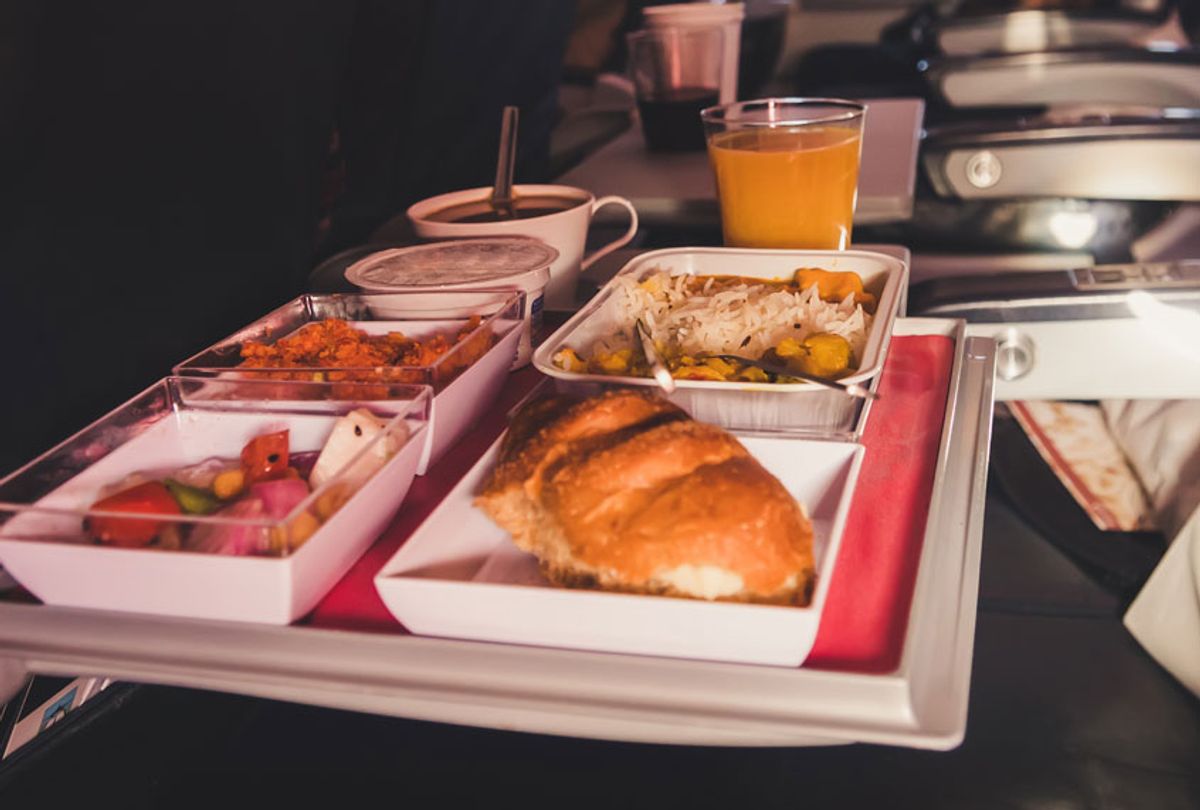Long a staple of stand-up comedy, airplane food doesn't have a great public reputation. Hence, as nearly 11,000 airplane caterers move forward to vote on a strike, one might think that many customers won't miss it.
Yet especially for longer flights, being able to have a drink, snack or meal can mean the difference between an irritable customer and a happy, satisfied one. That has airline industry executives biting their nails at the prospect of an airline food caterer's strike, which seems increasingly likely.
Last week, airline food caterers in Miami and San Francisco voted to authorize their union, Unite Here, to request a strike. Workers who vote to request a strike need to be released by the National Mediation Board (NMB), which governs airline workers, to issue a formal release of Unite Here members to allow them to strike legally. Unite Here anticipates that if a strike were to happen, which could come at the end of this summer or later in the year, it would include 11,000 airline food workers who prepare, pack, and deliver food and drinks served on American Airline, Delta, and United flights. Airline workers are covered under the Railway Labor Act (RLA) instead of The National Labor Relations Board, which means that when workers under the RLA authorize a strike, they must be approved for release in a parallel process by the NMB.
“The three biggest airlines in the country, American, Delta, and United, made $50 billion in combined profits in just the past five years alone — so why do workers who serve their food earn under $10 an hour in some cities?” said D. Taylor, International President of Unite Here. “The airline industry is making record profits on the backs of deeply exploited kitchen workers who are forced to choose between paying their bills, relying on government assistance or even forfeiting medical care even while working overtime.”
Workers' demands include increased hourly wages and more affordable health insurance. Less than 50 percent of food service workers at San Francisco International Airport had company health insurance in 2018; only 10 percent had a child or family covered. The median wage is $18.86 per hour at that airport, barely above the $15 per hour minimum wage in a region with one of the highest costs of living in the United States.
“One job should be enough for me and my daughter,” said Mohammed Rahman, a single dad who prepares beverages for United Airlines flights, in a media statement. “I do the drinks for United, one of the biggest airlines in the world, and I still make so little that my 14-year-old daughter and I have to share a single room in a house with three other roommates. I’m voting to strike because I think my daughter deserves better.”
Jeffrey Price, a professor in the Department of Aviation and Aerospace at Metropolitan State University of Denver, told Salon via email that while it is hard to quantify the precise impact of a strike on airlines, such a labor action will likely be felt by customers as the operations of air travel would be severely affected.
“While the airline will likely, temporarily, switch to a Southwest, or other low-cost carrier model, where you pretty much bring your own food, there will still be some basic need for water on board if nothing else,” Price says.
Temporarily replacing catering crews would mean that airlines would have to contract with off-site — meaning off the airport — providers. This is not an easy fix, as tedious arrangements would have to be made with new contractors.
“For the airlines to temporarily replace the catering crews, they would need to contract with off-site providers and make arrangements for the deliveries to be escorted through screening areas or across the airfield apron to the aircraft,” Price explained. “Accessing secured areas of an airport requires extensive work ahead of time with the airport security department to ensure individuals are background checked, properly badged (airport ID cards), and airfield safety issues for vehicles not normally on an airport to be on the apron areas, such as insurance, and airfield driver training.”
The cost could be millions, Price added, depending on how much the airline wants to continue to provide in terms of food and beverages.
A former catering executive at a U.S. airline, who asked to remain anonymous due to the sensitivity of the matter, told Salon most passengers have no idea of the complexity of the airline industry.
“Airline catering employees are among the thousands of people air travelers never see,” the former executive said. “But they would if they couldn’t get a Coke or beer on their flight.”
The former executive said that a big part of the problem is that airline catering is a duopoly.
“A big part of the problem is that airline catering is essentially a duopoly between the LSG SkyChefs, a subsidiary of the German airline Lufthansa, and Gate Gourmet, based in Switzerland and owned by private equity firms,” the former executive said. “The duopoly obviously means airlines can choose caterer A or caterer B, and contracts for catering services at large airports like New York Kennedy and Chicago O’Hare alternate every several years, from LSG to Gate or vice-versa.”
Despite the bureaucracy innate to airline catering operations, the bottom line is that food service workers are overworked and underpaid.
“Almost all food service workers do not earn much, despite their hard work,” the former executive said.
Unite Here is requesting at least a $15 wage baseline for catering employees nationwide, but some workers are saying even that is not enough.



Shares